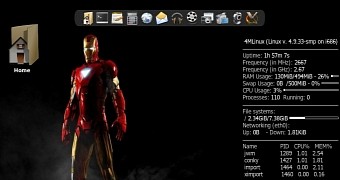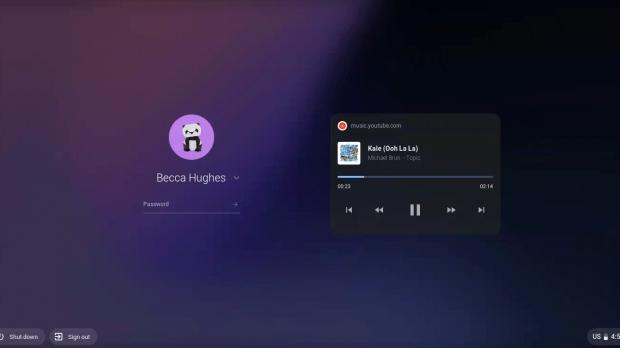Key Points
- Ubuntu 24.04 LTS for ESWIN’s EBC77 RISC-V SBC: Canonical and ESWIN Computing team up to bring the latest Ubuntu long-term support release to a low-cost, high-performance RISC-V platform.
- Open-source innovation boost: The EBC77 Series leverages Ubuntu’s ecosystem and RISC-V’s open architecture to cut costs and accelerate software development for edge computing, education, and embedded systems.
- New tools for developers and learners: This collaboration makes Ubuntu 24.04 a go-to OS for RISC-V hardware, offering a stable foundation for projects or experimenting with emerging chip tech.
ESWIN Computing and Canonical are shaking up the Linux hardware landscape with the EBC77 Series Single Board Computer (SBC), a device optimized for Ubuntu 24.04 LTS. This partnership marks a significant step forward for open-source enthusiasts, developers, and organizations exploring RISC-V architecture. The SBC, featuring a 64-bit Out-of-Order (OoO) RISC-V CPU and a custom-developed Neural Processing Unit (NPU), brings affordability and advanced performance to a growing ecosystem.
Ubuntu 24.04 LTS is a major win for users of the EBC77 Series. As a new long-term support (LTS) release by Canonical, it offers five years of updates and stability, making it ideal for projects where security and reliability matter. By tailoring Ubuntu for this SBC, Canonical ensures developers can tap into its vast software library, including tools for AI, IoT, and cloud computing, while reducing reliance on proprietary hardware. This is a fresh opportunity for Linux users to experiment with RISC-V—a rival to traditional x86 and ARM chips—without sacrificing access to their favorite open-source tools.
The EBC77’s RISC-V architecture is central to its appeal. RISC-V is an open, free instruction set design that allows hardware customization without licensing fees. For open-source software (OSS) communities, this shift aligns perfectly with Linux’s ethos of collaboration and flexibility. Users can now build and optimize software for RISC-V with Ubuntu as their go-to OS, bridging the gap between theoretical innovation and real-world application. The SBC’s self-developed NPU further underscores its focus on embedded systems and edge computing, where energy efficiency and real-time processing are critical.
Performance-wise, the EBC77 is hard to ignore. It sports LPDDR5 memory running at 6400Mbps, a high-speed component previously reserved for premium devices. This boosts multitasking and complex workload handling, from web browsing to AI model training. For Ubuntu users, this means deploying compute-intensive applications—like machine learning or containerized services—on a budget-friendly device. The SBC’s compact form factor and low power draw make it a candidate for smart home devices, robotics, and classroom projects, where portability and cost-effectiveness are non-negotiables.
Canonical’s involvement adds credibility. As the company behind Ubuntu, Canonical is deepening its commitment to RISC-V as a viable alternative to closed chip ecosystems. Supporting the EBC77 Series with Ubuntu 24.04 LTS demonstrates their focus on expanding Linux to new domains. This partnership also simplifies integration with the wider open-source community, as Canonical provides resources like pre-configured kernels and package repositories. For example, developers familiar with snaps (Canonical’s packaging system) can easily deploy applications across this platform.
Education is another key beneficiary. The EBC77’s affordability and Ubuntu’s tooling make it a strong choice for teaching hardware literacy and software development. RISC-V’s open design lets students and educators modify chip behavior, while Ubuntu’s documentation and community support lower the learning curve. Institutions might adopt this SBC for labs or startups for prototyping, using Ubuntu 24.04’s Python 3.11, Rust updates, and improved snapd for modern development workflows.
For Canonical’s ecosystem, this is a strategic move to position Ubuntu as the default OS for next-gen RISC-V hardware. The SBC’s success could inspire Canonical to invest more in RISC-V-specific features, such as optimized drivers or cloud integration for IoT devices. Users might also see enhanced hardware compatibility in future Ubuntu releases as the RISC-V ecosystem grows.
Ubuntu users and makers should take note: the EBC77 opens doors to test workloads on RISC-V without costly investment. With Ubuntu 24.04’s extended support and advanced containerization features, this could be a trial ground for scaling RISC-V in enterprise and edge environments. Meanwhile, Canonical’s backing ensures quick troubleshooting and community resources, reducing friction for new users.
The EBC77 Series isn’t just another SBC—it’s a benchmark for accessible innovation in open-source computing. By blending RISC-V’s flexibility with Ubuntu’s battle-tested OS, ESWIN and Canonical are creating a platform that invites creativity while addressing real-world hardware challenges. As RISC-V gains traction in areas like gaming and self-driving tech, a strong Ubuntu presence on this platform could catalyze even broader adoption of open-source solutions.
Ubuntu users and developers are encouraged to explore the EBC77’s potential. Whether it’s building a low-power server, experimenting with AI, or learning hardware fundamentals, pairing this SBC with Ubuntu 24.04 LTS offers a compelling way to participate in the future of open-source hardware and software.
Upgrade your life with the Linux Courses on Udemy, Edureka Linux courses & edX Linux courses. All the courses come with certificates.








